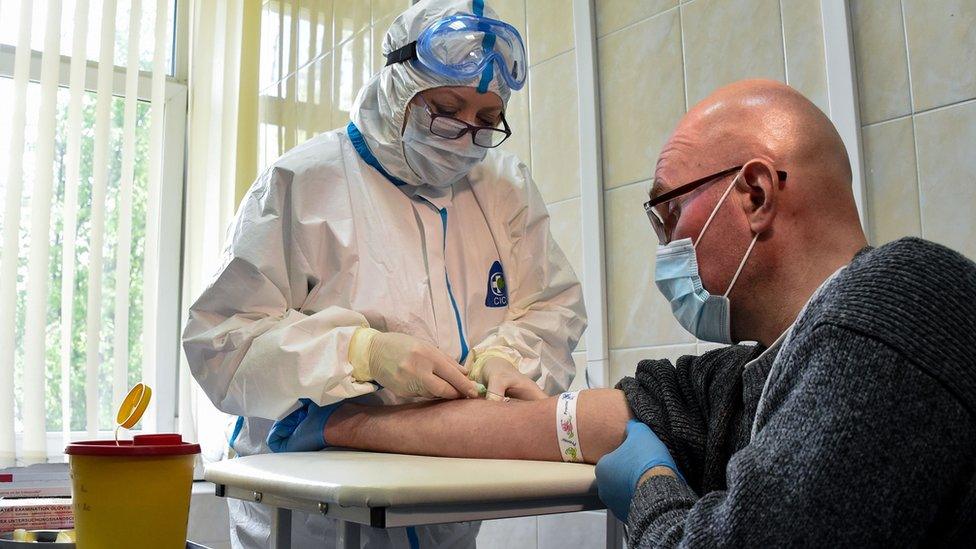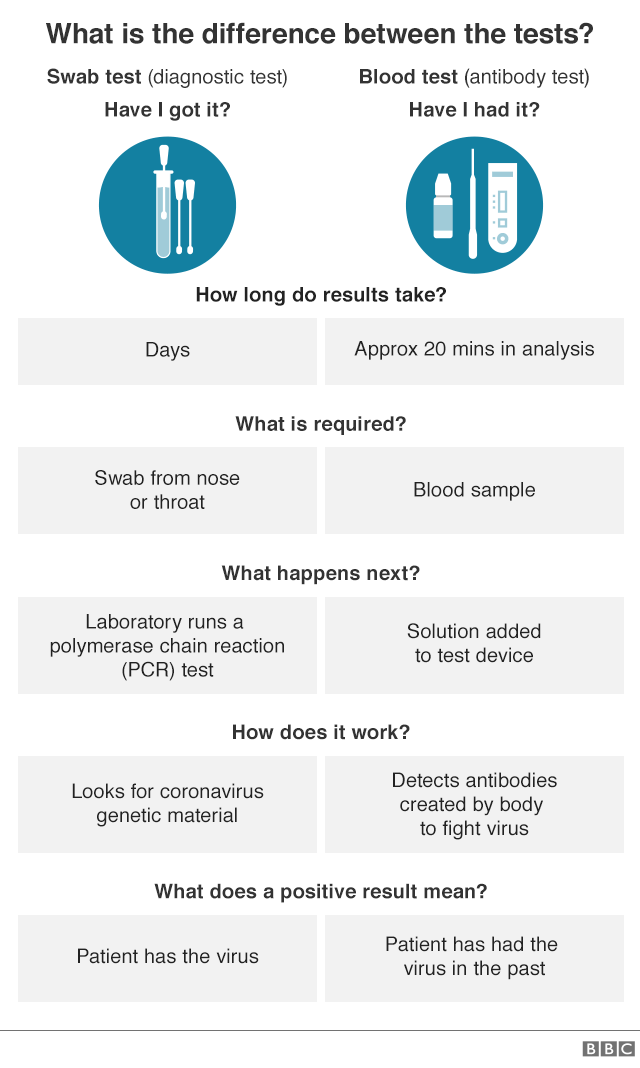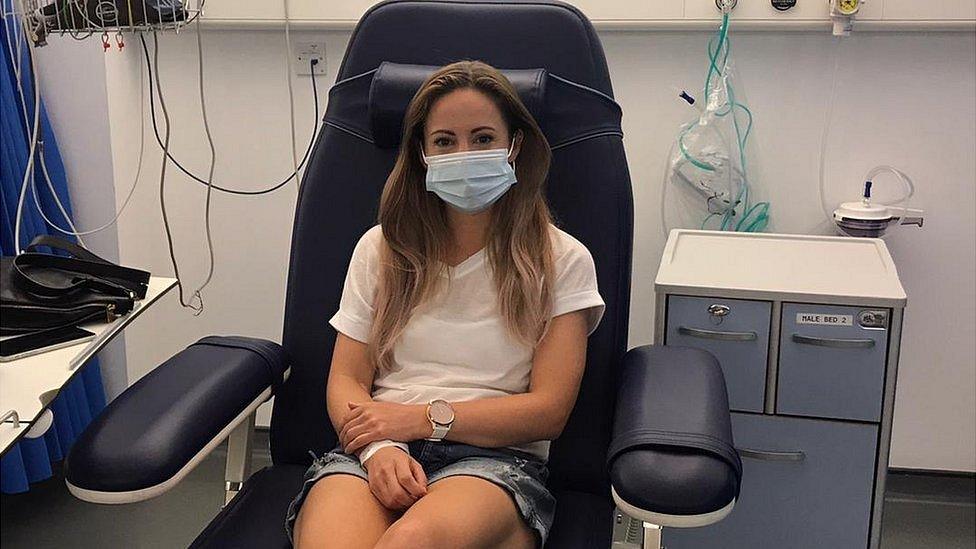Coronavirus: Antibody test lacks 'proper assessment'
- Published

Antibody tests are carried out in other countries, such as Russia
Covid-19 antibody tests for NHS and care staff are being rolled out without "adequate assessment", experts warn.
The tests could place an unnecessary burden on the NHS, the 14 senior academics say in a letter in the BMJ, external.
Last month, the government said it had bought 10 million antibody tests and asked NHS trusts and care homes to make them available to staff in England.
Officials say the blood tests - to see if someone has had the virus - will play an "increasingly important role".
Some patients and people having routine blood tests in England are being offered them too.
What are antibody tests?
They normally show if someone - who has previously been unwell with a bug - has developed antibodies that offer protection against future bouts of the illness.
But how the immune system reacts to the Covid-19 virus remains uncertain.
With the current laboratory tests, NHS England says, a positive result shows a person has had coronavirus.
But crucially, it does not prove they have immunity against future attacks or whether they could transmit the virus to others.

Analysis
Smitha Mundasad, Health reporter
The debate around antibody testing seems to centre on the potential benefits for an individual - versus the benefit to public health.
What is clear is that when individuals get positive results they cannot let their guard down or change their behaviour.
But antibody tests may help show how widespread the infection is, and give clues about who is most likely to get the virus and where.
Some experts argue the best way to get this information is for the vast majority of antibody testing to take place in well-designed studies - rather than being offered to any health and care staff who want them.
And a detailed review of evidence by the Cochrane group, suggests the timing of antibody tests is key - because if someone gets a test too early it may not work. The group suggests waiting at least two weeks after first getting symptoms.
The team also concluded a lot of the studies published so far on antibody tests are too small. They are calling for better, larger, trials - particularly in people who have no or mild symptoms - to see how accurate the tests are in these groups.

Nevertheless, health officials say gathering the results of these tests will help them understand more about the spread of disease.
Public Health England has launched a study of 10,000 healthcare workers, external which involves antibody and other blood tests to learn more about immunity to the virus.
What are the concerns?
The group of scientists say as a positive result is unable to prove immunity, the tests offer "no benefit" to hospitals and care staff.
The results do not change what personal protective equipment staff must wear, for example.
The academics also suggest there is little data on how well the test works for people at highest risk - including people belonging to some ethnic minorities and older patients.
Instead, they call for other carefully designed strategies to help monitor the spread of the virus.


What do other experts think?
Prof Sir John Bell from Oxford University, who has advised the government on antibody tests, said the academics who wrote to the BMJ had underestimated the value of the tests.
"We do need to know how many people out there have been infected and the only way to do this is antibody testing," he told BBC Radio 4's Today programme.
But he said they were right to say there was not enough evidence that a positive test indicated immunity. "You couldn't safely use it as a way of telling people whether they could be exposed or not," he said.
Prof Martin Hibberd, of the London School of Hygiene and Tropical Medicine, described the tests as an important component of the public-health response.
He added: "If used successfully, the data generated will be important surveillance information for understanding the effectiveness of control measures put in place."
Meanwhile Dr Tom Wingfield, at the Liverpool School of Tropical Medicine, said he shared the concerns raised in the academics' letter.
He added: "We don't yet have sufficient evidence on accuracy and interpretation of antibody tests."

SOCIAL DISTANCING: What are the rules now?
SOCIAL LIFE: When will pubs, bars and restaurants reopen?

A Public Health England official said all tests in the programme had been "extensively validated by the manufacturers and have received CE marks" indicating compliance with EU safety standards.
What about other parts of the UK?
Wales is currently working on its testing policies.
Meanwhile, Scotland's chief medical officer has written to all health boards to say they should not offer "on-demand" antibody testing to NHS staff, care workers or patients.

TALKING HEADS: Imelda Staunton, Sarah Lancashire and Jodie Comer take on the much-loved monologues
PREVIEW THE LATEST MUST-SEE SHOW: I May Destroy You


How have you been affected by coronavirus? Tell us about your experience by emailing haveyoursay@bbc.co.uk, external.
Please include a contact number if you are willing to speak to a BBC journalist. You can also contact us in the following ways:
WhatsApp: +44 7756 165803, external
Send pictures/video to yourpics@bbc.co.uk, external
Tweet: @BBC_HaveYourSay, external
Please read our terms & conditions and privacy policy
- Published21 May 2020

- Published24 June 2020
